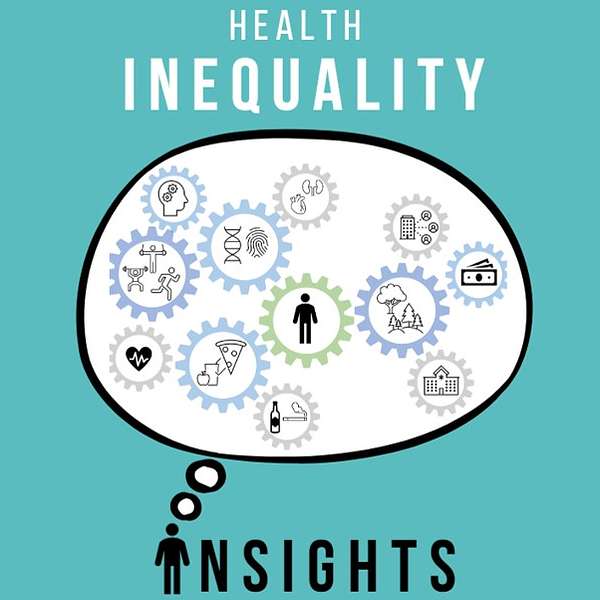
Health Inequality Insights
Welcome to the podcast dedicated to exploring the complexities of health inequalities within healthcare.
The podcast aims to spark meaningful conversations among healthcare professionals and beyond, driving progress towards a more equitable future. Listeners are encouraged to build on what they learn from others and to think about implementing change within their own practice to better serve the population they work with.
Tune in to gain valuable insights and to be part of the conversation.
Health Inequality Insights
From Vision to Action: Leadership and Change
Episode Description
Dr Su Khant Chei (GP) welcomes Sophie Edwards, an Organisational Development Consultant who is an expert in delivering complex change and improvement, and Dr Nadeeja Koralage, a GP partner with first-hand experience in leading change at her practice. We discuss what it takes to be a successful driving force for change in your organisation.
Key Messages
- Anyone can kick-start a process of change to tackle a health inequality from a hunch that something isn't working for a particular group.
- Start small, scale up: quality improvement methodologies such as the plan-do-study-act cycle allows experimentation and refinement on a smaller scale.
- Leading change alone can be isolating and unsustainable, so it is vital to recruit allies with complementary strengths to avoid change fatigue.
- Leadership should be distributed and based on a shared purpose, which you can come back to when you need to evaluate your successes.
Resources
The NHS Change Model https://www.england.nhs.uk/wp-content/uploads/2018/04/change-model-guide-v5.pdf
The Model for Improvement/Plan-Do-Study-Act cycle https://www.ihi.org/resources/how-improve-model-improvement
Sophie always enjoys chatting with people about their change and improvement projects, so if you'd like to talk about the QI tools or just about improvement work in general, you can contact her via LinkedIn at
Connect with us
If you would like to get involved, have any questions, comments, or topic suggestions, please email us at nationalheft@gmail.com. You can also connect with us on https://future.nhs.uk/NationalHEFT/groupHome and https://twitter.com/NationalHEFT
Disclaimer
The information provided in this podcast, is intended for educational and informational purposes only. While we strive to provide accurate and up-to-date information, the content should not be considered a substitute for professional medical advice, diagnosis, or treatment. Listeners are encouraged to consult with their own healthcare providers or seek appropriate medical guidance for any specific health concerns. The views and opinions expressed in this podcast are those of the host and guests and do not necessarily represent the views of their respective institutions or organizations. Every effort is made to ensure the accuracy and reliability of the information presented, but we cannot guarantee that all content is current, complete, or free from errors. Listeners are encouraged to verify any medical information from trusted sources and consult with their own qualified healthcare professionals. We hope this podcast serves as a valuable resource in promoting awareness and understanding of health inequalities and related topics.